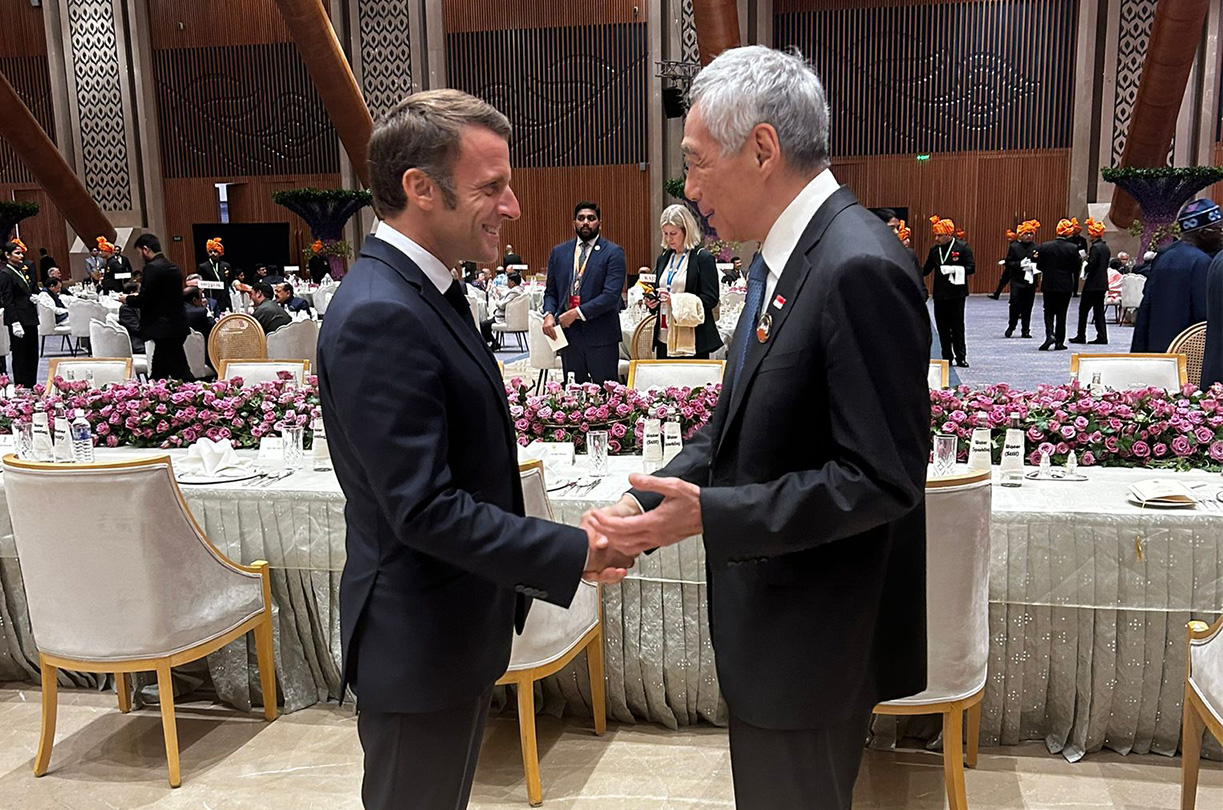Discrepancies Revealed: Former French PM And Macron's Policy Differences

Table of Contents
Economic Policies: Diverging Paths to Growth
Macron's Liberal Reforms vs. Manuel Valls's More Interventionist Approach
Emmanuel Macron's economic policies are characterized by a commitment to liberalization. He has championed labor market reforms aimed at making it easier for businesses to hire and fire, coupled with significant tax cuts for corporations. This contrasts sharply with the more interventionist approach favored by former Prime Minister Manuel Valls, who prioritized social welfare and government intervention in the economy.
- Macron: Labor law reforms, significant corporate tax cuts, focus on attracting foreign investment.
- Valls: Emphasis on protecting workers' rights, higher minimum wage, greater government spending on social programs.
The consequences of these differing approaches are evident in economic growth rates, job creation, and income inequality. While Macron's reforms aimed to boost economic competitiveness, critics argue they have exacerbated income inequality and failed to deliver sufficient job creation for all sectors of society. Valls's approach, while aiming for social equity, faced criticism for potentially hindering economic dynamism.
Pension Reform: A Major Point of Contention
Macron's pension reform, aiming to address the long-term sustainability of the French pension system, sparked widespread protests and strikes. His proposal to raise the retirement age and restructure the system met with fierce resistance, highlighting fundamental disagreements on the role of the state in providing social security. Previous Prime Ministers, while acknowledging the need for pension system reform, generally adopted more gradual and less contentious approaches, often prioritizing social dialogue and compromise.
- Macron: Raising the retirement age, unifying various pension schemes into a points-based system.
- Previous PMs (e.g., Valls, Ayrault): More incremental reforms, focusing on adjustments to existing schemes rather than sweeping overhauls.
The public reaction to Macron's pension reform underscores the deep-seated divisions within French society regarding the balance between fiscal responsibility and social protection. The political ramifications were significant, contributing to ongoing social unrest and impacting Macron's approval ratings.
Foreign Policy: Different Approaches to International Relations
Macron's European Integration vs. François Fillon's More Nationalistic Approach
Macron has been a staunch advocate for a stronger, more integrated European Union, pushing for deeper fiscal and political union. This contrasts with the more nationalistic approach adopted by former Prime Minister François Fillon, who prioritized French national interests and expressed skepticism towards further EU integration.
- Macron: Championing a stronger EU role in defense, advocating for increased EU budgetary powers, promoting closer economic coordination.
- Fillon: More emphasis on national sovereignty, cautious about ceding more power to Brussels, prioritizing bilateral agreements over EU-level initiatives.
The geopolitical implications of these differing approaches are far-reaching. Macron's vision aims to enhance the EU's global influence, while Fillon's approach might lead to a more fragmented and less influential Europe.
Responses to Global Challenges: Diverging Strategies
Macron and previous Prime Ministers have also shown different approaches to global challenges. For instance, Macron's strong commitment to combating climate change is reflected in ambitious environmental policies. However, previous administrations, while acknowledging the importance of environmental protection, may have prioritized other national interests.
- Macron: Ambitious climate targets, significant investment in renewable energy, strong advocacy for international climate agreements.
- Previous PMs: Varied approaches, with some prioritizing economic growth over immediate environmental concerns.
The effectiveness of these differing strategies in addressing global challenges such as climate change, terrorism, and migration remains a subject of ongoing debate and analysis.
Social Policies: Differing Visions for French Society
Welfare State: Levels of Government Intervention
Macron's approach to the welfare state reflects a desire to reform and modernize it, often emphasizing efficiency and reducing public spending. Previous Prime Ministers have generally favored a more expansive welfare state with greater government intervention and social protection.
- Macron: Focus on reforming unemployment benefits, streamlining social programs, emphasizing work incentives.
- Previous PMs: Stronger emphasis on social safety nets, greater investment in social housing, broader access to social services.
The social impact of these contrasting approaches is significant, affecting income distribution, access to healthcare, and the overall quality of life for different segments of the French population.
Immigration and Integration: Contrasting Policies
Macron’s approach to immigration and integration has focused on balancing security concerns with the need for a more inclusive society. However, previous Prime Ministers have adopted different approaches, often reflecting prevailing social and political attitudes towards immigration.
- Macron: Stricter border controls, emphasis on integrating immigrants into French society through language training and employment programs.
- Previous PMs: Varied approaches, ranging from more restrictive policies to a greater emphasis on welcoming immigrants.
The impact of these different policies on French society is reflected in immigration patterns, integration challenges, and public opinion towards immigration and immigration policies.
Conclusion
The policy discrepancies between President Macron and previous French Prime Ministers are significant and far-reaching, impacting various aspects of French society. From economic liberalization to social welfare policies and foreign relations, the choices made by these leaders have shaped, and continue to shape, the trajectory of France. These differences highlight fundamental disagreements on the role of the state, the balance between economic growth and social equity, and France's position on the world stage. To gain a deeper understanding of these crucial discrepancies and their impact on France, continue exploring related articles and analyses of French political economy and foreign policy.

Featured Posts
-
 Aapl Stock Analysis Of Upcoming Price Levels
May 24, 2025
Aapl Stock Analysis Of Upcoming Price Levels
May 24, 2025 -
 Strengthening Ties The 2nd Edition Of Best Of Bangladesh In Europe
May 24, 2025
Strengthening Ties The 2nd Edition Of Best Of Bangladesh In Europe
May 24, 2025 -
 Tennisniy Proryv Kazakhstan V Finale Kubka Billi Dzhin King
May 24, 2025
Tennisniy Proryv Kazakhstan V Finale Kubka Billi Dzhin King
May 24, 2025 -
 Konchita Vurst Peredbachaye Peremozhtsiv Yevrobachennya 2025
May 24, 2025
Konchita Vurst Peredbachaye Peremozhtsiv Yevrobachennya 2025
May 24, 2025 -
 Nicki Chapmans Smart Property Investment A 700 000 Return On Her Escape To The Country
May 24, 2025
Nicki Chapmans Smart Property Investment A 700 000 Return On Her Escape To The Country
May 24, 2025
